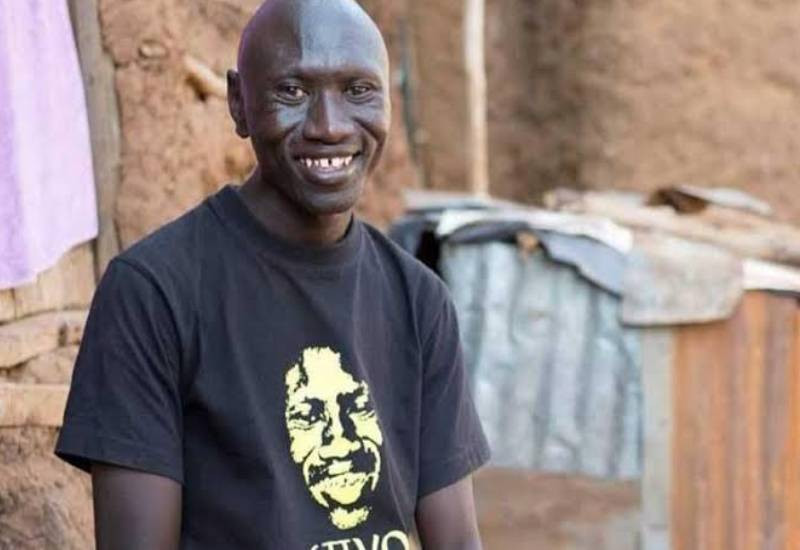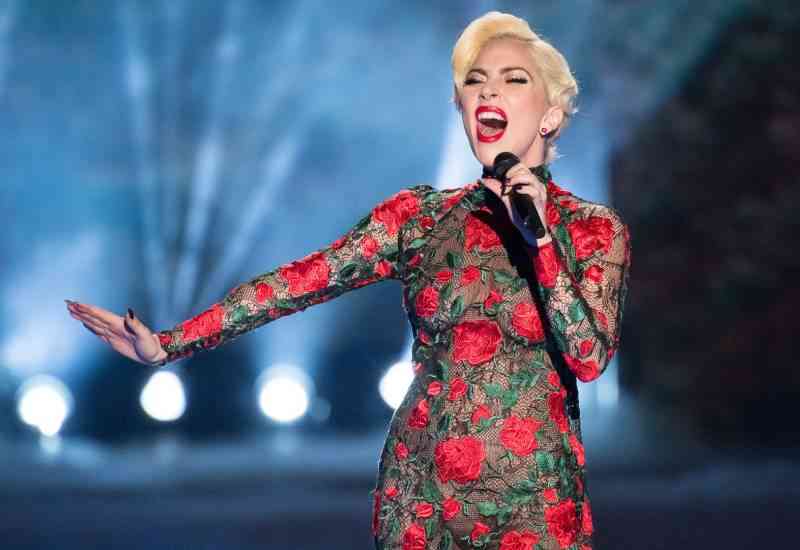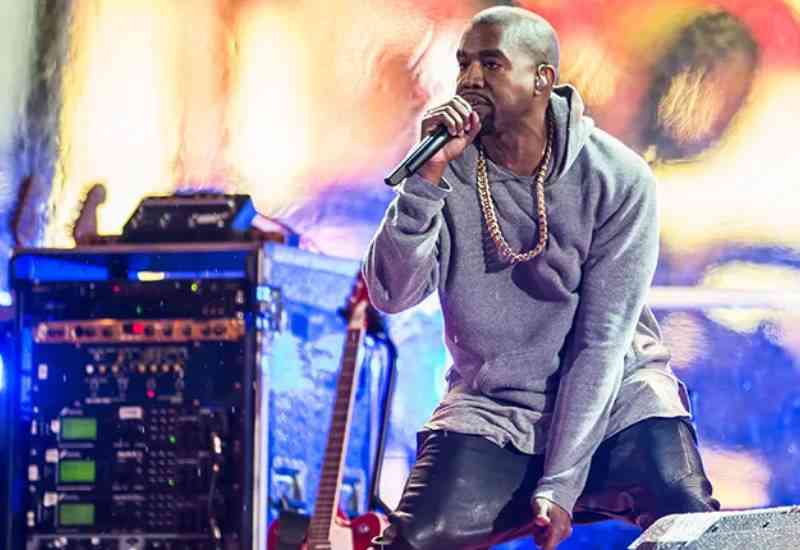
A few weeks ago, the popular Kenyan artiste and social media personality Stevo Simple Boy collapsed during a live appearance on a TV show.
He was surrounded by eager fans on the podium and was speaking to the show’s host when he suddenly leaned forward, rested the palms of his hands on his knees briefly, before falling over on his back.
Clips of the March 15 incident are on YouTube, and indicate that all seemed to be going well on the Citizen TV entertainment show, 10 Over 10, before his shocking collapse.
“Halfway through the interview, Stevo began to struggle for breath, causing concern from both the host and the audience. Despite attempts to continue answering questions, the famed Kibera artist eventually collapsed, causing a brief interruption in the show as efforts were made to assist him,” a report by a national publication notes.
The artiste later took to his Instagram to address concerned fans and onlookers, hinting that stress led to the collapse.
"Meneja Rudi tupige kazi nimeishiwa Nguvu watu wasitukosanishe stress inanipiga mpaka naanguka kwa stage Niki perform mnatakuniaribia mpaka manager .” Stevo wrote on social media, urging his manager to get back to work and attributing the fall to stress.

That entertainers can get fatigued or stressed enough to collapse on stage is nothing new, rather, it happens often, especially internationally.
It goes to show that the work artistes do can be extremely strenuous, and our favourite celebs and their teams need to take care of themselves mentally and physically during intense performing seasons.
“I’ll admit it. I used to think pop stars who canceled tours “due to exhaustion” were just being divas, or worse-yet, downplaying a major drug or alcohol problem… until I suffered a breakdown on tour that effectively ended my career as a performing musician and sent me into a tailspin of depression, anxiety and alcoholism that lasted a decade,” Maroon 5 founding drummer Ryan Dusick wrote on a candid piece about mental health and his career.
Dusick said that his packed schedule and piling commitments as a rock star in a world- famous band led to his “body giving out” and highlighted to him the importance of mental health care, even for entertainers.
He added: “In recent months, several young artists including Justin Bieber, Shawn Mendes, Arlo Parks and Lil Baby have canceled tour dates due to concerns about their mental and physical health. As a mental health professional now, I see these performers taking proactive steps to prevent a major breakdown as an encouraging sign that the music industry is beginning to prioritize the mental health of its artistes more than it did in previous generations.”
Chadwick Digo, a nutritionist and technical consultant, tells The Standard that fatigue can be caused by various factors, including lacking a proper diet and improper intake of water.
The health professional further notes that 50 to 80 percent of fatigue cases are mainly due to psychological factors.
Digo goes on to suggest dietary, sleep, lifestyle and psychological factors to consider in the management of fatigue for artistes and performers.
“Most of the time, fatigue can be traced to one or more of your habits or routines. Fatigue can be a normal and important response to physical exertion, poor eating habits, emotional stress, boredom, or lack of sleep,” Digo says, adding that “In some cases, however, fatigue is a symptom of an underlying medical problem that requires medical treatment. When fatigue is not relieved by enough sleep, good nutrition, or a low-stress environment, it should be evaluated by your doctor.”
First, it’s all about water, as hydrating is key. Digo notes that sometimes one may feel tired simply because they are mildly dehydrated.
The health professional notes: “A glass of water will help do the trick, especially after exercise.”
He however warns about caffeine intake, which he says should be monitored in a careful way, with anyone dealing with exhaustion being advised to cut off caffeine in the meantime.
“Try to stay off caffeine completely for a month to see if you feel less tired without it,” he says.

BBC Radio lists on its website several renowned stars who have struggled with exhaustion at some point in their careers, including the celebrated rapper Ye (formerly Kanye West), singer Rita Ora, super model Kendall Jenner and singer- songwriter Lady Gaga.
The report notes: “Lady Gaga puts 100 per cent into everything she does and her work ethic caught up with her in 2010 when she was forced to cancel and postpone a number of US shows. Gaga was rushed to hospital in Indiana due to "exhaustion and dehydration" despite making it to the concert venue in the hope of performing.”
According to the report, rapper Ye was forced to cancel a string of live shows in November 2016 when he began struggling with exhaustion during his Saint Pablo tour.
“TMZ reported that Kanye was hospitalised suffering from ‘temporary psychosis due to sleep deprivation and dehydration’ and spent a week recovering. His actions during his performances had hit the headlines and raised concern for his wellbeing in the weeks before he quit the tour.”

A 2018 report by the National Center for Biotechnology Information (NCBI) notes that artistes and musicians suffer from multiple psychological challenges in their careers, with little being understood of the kind of pressure they undergo to execute their shows.
“In order to establish and maintain a successful performance career, musicians need to deal with challenges such as coping with the consequences of early specialization, social isolation, practice volume, identity foreclosure, teacher relationships, burnout, injury, psychological pressure, and perfectionism,” the NCBI report notes.
Some of the psychological challenges faced by performers investigated in the study include difficulties dealing with anxiety, depression, stress related to self-management, job insecurity and fear of memory lapses during performance.
The report adds on stress performers may deal with: “Most participants also suggested that personal problems (e.g., relationship breakdowns, homesickness, family issues) impacted on their performance. This was often attributed to loss of focus, motivation and energy, and decreased ability to focus on performance preparation and execution.”
Back on the physical front, Nutritionist and technical consultant Chadwick Digo notes that eating a healthy diet is a major part of countering exhaustion.
He advices us to avoid skipping meals, especially breakfast, and strive to have a healthy diet.
“Going without food for too long allows blood sugar levels to dip. Try to eat regularly to maintain your energy levels throughout the day. Increase the amount of fruit, vegetables, wholegrain foods, low fat dairy products and lean meats in your diet. Reduce the amount of high fat, high sugar and high salt foods.”
Digo adds: “Eat iron rich foods – women, in particular, are prone to iron deficiency (anaemia), which can lead to feeling fatigued. Make sure your diet includes iron-rich foods such as lean red meat.”